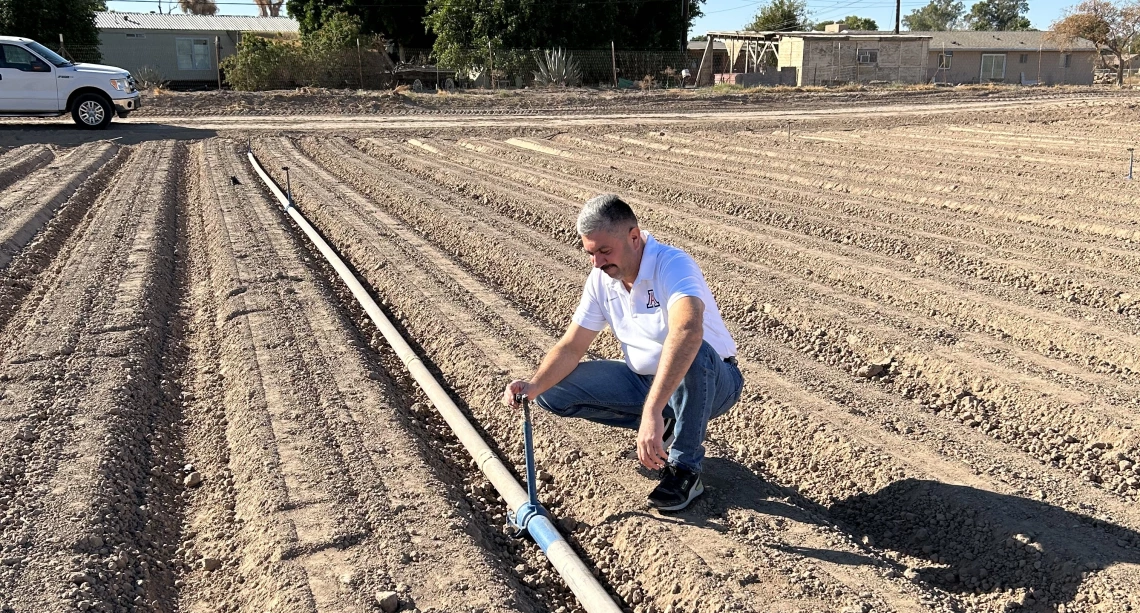School of Plant Sciences Seminar Series

Speaker
When
Where
Abstract: Arizona is the second-largest lettuce producer in the United States, with the leafy greens industry contributing approximately $2 billion annually to the state’s economy. Organic lettuce production is expected to gain prominence due to its potential benefits, including reduced input requirements, improved soil quality, and enhanced agro-ecosystem functionality. However, organic lettuce production poses challenges, such as the crop’s high nitrogen demand, particularly during its rapid growth and heading stages. Efficient organic nitrogen management will be crucial to improving yields, reducing environmental impacts, and optimizing resource use in Yuma, Arizona’s desert farming systems. This research will evaluate the adoption of best management practices, such as site-specific, sensor-based monitoring of soil nitrate levels, to enhance nutrient use efficiency while minimizing environmental risks. Coupling organic fertilizers with biostimulant is anticipated to improve soil structure, water retention, and crop resilience under stress. Despite these benefits, limited research in local conditions has made it difficult for farmers to incorporate biostimulant into organic cropping systems effectively.
Bio: Dr. Ali Mohammed is an Assistant Professor and Extension Specialist in the School of Plant Sciences at the University of Arizona, based at the Yuma Agricultural Center. His work focuses on advancing sustainable organic agricultural practices in arid desert regions and holds statewide responsibility for Extension and research programs. Dr. Mohammed's research interest is in comparing different specialty and row crop systems, both organic and conventional cropping systems, in the lower deserts of the Southwest USA. His research and Extension programs focus on coupled irrigation and nutrition management, soil amendments, and improving soil physical properties. Recognizing the unique challenges of farming in arid regions, his work integrates innovative sensor technologies to enhance water and nutrient resource efficiency and sustainability. Dr. Mohammed earned his Master of Science in Mechanized Systems Management and his Ph.D. in Agricultural and Biological Systems Engineering from the University of Nebraska-Lincoln. His research focused on evaluating irrigation and nitrogen management strategies across center pivot, subsurface drip, and furrow irrigation systems.

